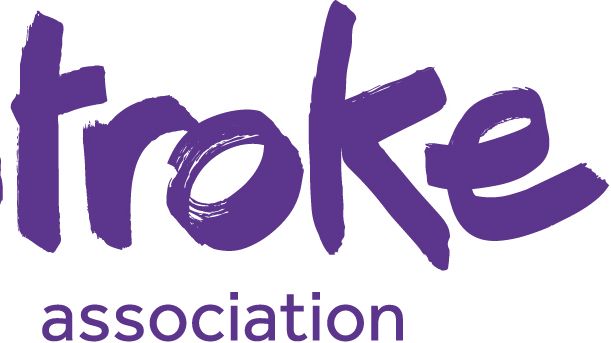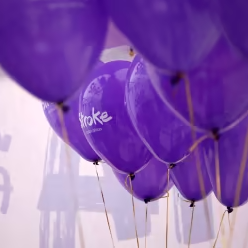
Press release -
Lack of therapy puts stroke survivors’ recovery at risk
Stroke survivors’ recoveries are being put at risk due to a lack of rehabilitation therapy after they leave hospital, according to the Stroke Association today (8 May 2018).
Rehabilitation therapy, which includes physiotherapy, occupational therapy and speech and language therapy, can help stroke survivors relearn basic skills such as how to walk, talk and even eat again so they can regain their independence.
NICE guidelines (i) recommend at least 45 minutes, five days a week of each type of rehabilitation therapy needed by stroke survivors for as long as it’s of benefit to them. However, the Stroke Association has revealed that, on average, stroke survivors only receive around a third of that.
The finding comes from the latest Sentinel Stroke National Audit Programme (SSNAP)report for 2016 to 2017 (ii) on stroke patients discharged from hospital. It shows that stroke survivors received what equates to just 16 minutes of physiotherapy, 16 minutes of occupational therapy and 12 minutes of speech and language therapy per day.
The charity is calling on local health commissioners in England to prioritise meeting the recommended standards of rehabilitation therapy to ensure that stroke survivors can make their best recovery and rebuild their lives.
Juliet Bouverie, chief executive at the Stroke Association said: “These findings clearly show that the amount of rehabilitation therapy stroke survivors receive once they return home from hospital is woefully inadequate, and jeopardises their recoveries.
“Almost two thirds of stroke survivors leave hospital with a disability. For those who have been robbed of the ability to carry out simple every-day tasks, access to rehabilitation therapy can be truly life-changing, for them and their families. We know that some stroke survivors have resorted to paying privately for therapy as they fear for their future. But, rehabilitation therapy is an absolute necessity for stroke recovery, it should not be a luxury only available to those who can afford it.”
Philippa Haslehurst, from London had a stroke aged 47. After leaving hospital she received only two NHS sessions of physiotherapy and occupational therapy. As a result she chose to go private for further physiotherapy.
She said: “I felt like after a couple of rehabilitation sessions, the NHS had wiped their hands of me. I’d made hardly any progress and was still very much dealing with the debilitating after-effects of my stroke. If it wasn’t for the private physiotherapy, I wouldn’t be walking now let alone back at work. I believe physiotherapy saved me.”
Professor of stroke rehabilitation at the University of Nottingham, Marion Walker, who is the UK’s leading stroke rehabilitation specialist said: “It’s a commonly held misconception that you can’t recover from stroke. However, we have robust evidence that shows stroke rehabilitation therapy can help people to regain the skills of daily life. I’ve seen and supported many stroke survivors, who had been told they would be left with lifelong disabilities, defy expectations after receiving the right level of rehabilitation and support. Stroke is a recovering condition and rehabilitation is absolutely worth investing in.
“In recent years we have seen dramatic improvements in stroke care and more people than ever are surviving a stroke. However, the importance of continuing vital rehabilitation therapy once a patient has been discharged from hospital is still not being recognised and as a result many stroke survivors are missing out on their best chance of recovery.”
Stroke is the UK’s fourth biggest killer and a major cause of disability. The Stroke Association is campaigning for better stroke prevention, treatment and care and is working with NHS England on the final phase of a new national plan for stroke in England, in partnership with others from across the health and care system. Through taking a system-wide look across the whole stroke pathway, the NHS will deliver better treatment and care for those affected by stroke.
The Stroke Association provides information and support to anyone who has been affected by stroke via the Stroke Helpline on 0303 3033 100 or by visiting www.stroke.org.uk/independence.
Prof Karen Middleton, chief executive of the Chartered Society of Physiotherapy, said:
“We cannot have people losing 20 years or more of their working lives for entirely avoidable reasons. Two thirds leave hospital with a disability, and almost half of all stroke survivors leaving hospital feel abandoned when they cannot access high quality rehab services. Rehabilitation gives people back their independence, and we must do more to ensure it’s available to all who need it.”
Kamini Gadhok, CEO of the Royal College of Speech and Language Therapists said:
“We know that two-thirds of people who leave hospital post-stroke have problems communicating and understanding. Simple things we take for granted, such as ordering a coffee, telling jokes or being able to say: ‘I love you,’ to those you’re closest to can be a huge struggle and individuals often feel isolated not being able to participate in conversations. Speech and language therapists support people to get their lives back, which is why rehabilitation must be prioritised.”
- ENDS -
Notes to editor
For interviews with case studies, Prof Walker and Stroke Association spokespeople please contact the Stroke Association’s media team on 020 7566 1500 or email press@stroke.org.uk For urgent out of hours media enquiries only please call 07799 436 008. ISDN facilities are available.
- (i)The full NICE Guidance on stroke rehabilitation 2013, which recommends at least 45 minutes, five days a week can be viewed here.
- In addition, The Royal College of Physicians also published guidelines in 2016, which recommend 45 minutes of rehabilitation therapy per day, seven days a week. The full RCP guidance can be viewed here.
- (ii)The Sentinel Stroke National Audit Programme (SSNAP) is the single source of stroke data in England, Wales and Northern Ireland. The 2016 -17 SSNAP report can be viewed here. From 2018, SSNAP will be conducted by Kings College London, previously it was conducted by the RCP.
Topics











